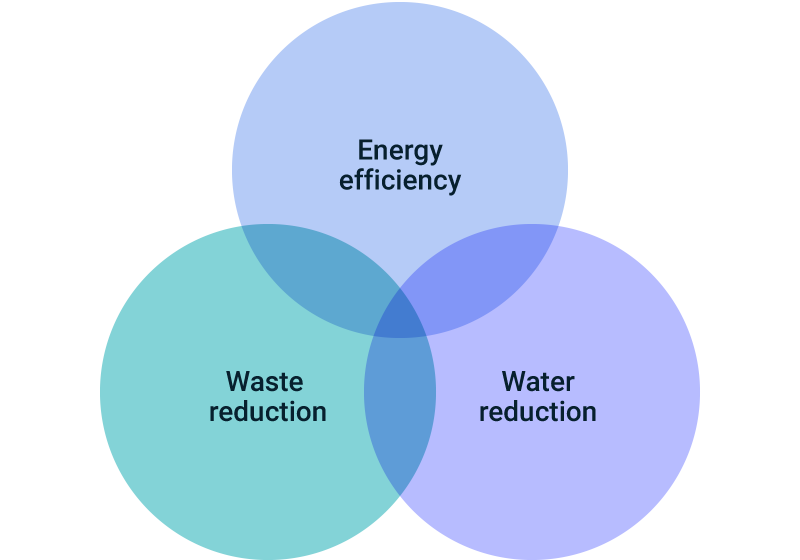Our Approach to Protecting the Environment
Our Approach to Protecting the Environment
As a glass manufacturer that relies heavily on resources and energy, protecting the environment is a top management priority. We view environmental responsibility as a core value, and in all our operations we are strongly committed to protecting the environment. We believe the key to environmentally friendly manufacturing lies in creating the most efficient processes possible. To that end, we continually strive to reduce our environmental footprint and develop operations that promote sustainability and protect biodiversity. We are also actively pursuing carbon neutrality as part of our efforts.
Environmental Charter
The Environmental Charter serves as our foundational policy, guiding the direction of our environmental initiatives and activities. In line with this Charter, NEG and its Group companies are united in leveraging our glass technologies and products to protect the global environment and contribute to a recycling-oriented society.
Environmental Principles
Preserving the global environment is essential for the prosperity of people and society in the 21st century.
Nippon Electric Glass, guided by the corporate philosophy of “Exploring Glass's Creative Potential to Shape a Brighter Future” and committed to “consideration for the environment” as a core value, strives to remain the world’s leading manufacturer of special glass. We achieve this through cutting-edge technological development, top-tier quality standards, efficient production processes, and a steady supply of products. Together with our group companies, NEG is dedicated to preserving the environment and fostering a recycling-based society by adopting highly efficient, environmentally responsible practices.
Action Plan
-
We comply with all environment-related laws, regulations, conventions, and agreements we have signed, while also establishing and enforcing our own voluntary environmental standards.
-
We aim to minimize our environmental impact across all stages of our corporate activities and product life cycle, from procurement and manufacturing to transportation, sales, use, reuse, treatment, and disposal.
-
We are committed to achieving the world’s most efficient manufacturing processes, which optimize resource and energy use while contributing to biodiversity preservation and greenhouse gas reduction.
-
We strive to adapt to the evolving environmental demands of 21st-century society, taking action to prevent pollution and strengthen our societal presence.
-
We set clear environmental objectives and targets, achieving them through the participation of all employees in environmental protection activities and the continuous improvement of our environmental management system to enhance overall performance.


Established September 1, 1992
Revised January 1, 2023 (8th edition)
The Environmental Charter is shared with all employees and affiliated companies and is available to external parties upon request.
Environmental Business Plan Overview
Our Environmental Business Plan is a distinctive initiative that applies business management principles to environmental conservation. The plan promotes wide-ranging efforts to use resources efficiently and minimize waste to protect the environment and contribute to a recycling-oriented society with a focus on three core areas: waste reduction, water conservation, and energy efficiency.
We launched our waste management plan in fiscal 2001, followed by water conservation efforts in fiscal 2003. We set unit-based targets for both waste and water, which we continuously review and lower to reduce our environmental impact over time. Recognizing that the glass melting process is highly energy-intensive, we launched a proactive initiative in fiscal 2021 to reduce energy consumption, using energy intensity as a key performance indicator to guide our efforts. This energy initiative includes improving the electric power ratio, using hydrogen combustion and other new manufacturing processes, and incorporating renewable energy sources. These efforts are further supplemented by our efforts to achieve our CO₂ reduction targets, which are part of our climate change initiatives.
We are advancing similar efforts in all of our business departments based on our view that waste-free manufacturing is both economical and environmentally friendly, and helps preserve biodiversity.
